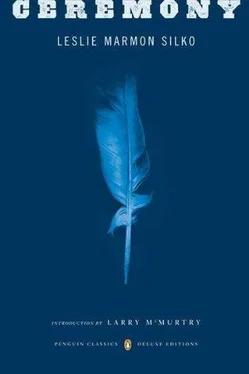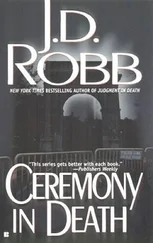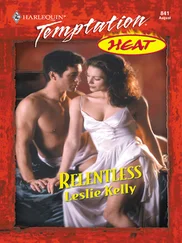For a long time he had been white smoke. He did not realize that until he left the hospital, because white smoke had no consciousness of itself. It faded into the white world of their bed sheets and walls; it was sucked away by the words of doctors who tried to talk to the invisible scattered smoke. He had seen outlines of gray steel tables, outlines of the food they pushed into his mouth, which was only an outline too, like all the outlines he saw. They saw his outline but they did not realize it was hollow inside. He walked down floors that smelled of old wax and disinfectant, watching the outlines of his feet; as he walked, the days and seasons disappeared into a twilight at the corner of his eyes, a twilight he could catch only with a sudden motion, jerking his head to one side for a glimpse of green leaves pressed against the bars on the window. He inhabited a gray winter fog on a distant elk mountain where hunters are lost indefinitely and their own bones mark the boundaries.
He stood outside the train depot in Los Angeles and felt the sunshine; he saw palm trees, the edges of their branches turning yellow, dead gray fronds scaling off, scattered over the ground, and at that moment his body had density again and the world was visible and he realized why he was there and he remembered Rocky and he started to cry. The red Spanish tile on the depot roof got blurry, but he did not move or wipe away the tears, because it had been a long time since he had cried for anyone. The smoke had been dense; visions and memories of the past did not penetrate there, and he had drifted in colors of smoke, where there was no pain, only pale, pale gray of the north wall by his bed. Their medicine drained memory out of his thin arms and replaced it with a twilight cloud behind his eyes. It was not possible to cry on the remote and foggy mountain. If they had not dressed him and led him to the car, he would still be there, drifting along the north wall, invisible in the gray twilight.
The new doctor asked him if he had ever been visible, and Tayo spoke to him softly and said that he was sorry but nobody was allowed to speak to an invisible one. But the new doctor persisted; he came each day, and his questions dissolved the edges of the fog, and his voice sounded louder every time he came. The sun was dissolving the fog, and one day Tayo heard a voice answering the doctor. The voice was saying, “He can’t talk to you. He is invisible. His words are formed with an invisible tongue, they have no sound.”
He reached into his mouth and felt his own tongue; it was dry and dead, the carcass of a tiny rodent.
“It is easy to remain invisible here, isn’t it, Tayo?”
“It was, until you came. It was all white, all the color of the smoke, the fog.”
“I am sending you home, Tayo; tomorrow you’ll go on the train.”
“He can’t go. He cries all the time. Sometimes he vomits when he cries.”
“Why does he cry, Tayo?”
“He cries because they are dead and everything is dying.”
He could see the doctor clearly then, the dark thick hair growing on the backs of the doctor’s hands as they reached out at him.
“Go ahead, Tayo, you can cry.”
He wanted to scream at the doctor then, but the words choked him and he coughed up his own tears and tasted their salt in his mouth. He smelled the disinfectant then, the urine and the vomit, and he gagged. He raised his head from the sink in the corner of the room; he gripped both sides and he looked up at the doctor.
“Goddamn you,” he said softly, “look what you have done.”
There was a cardboard name tag on the handle of the suitcase he carried; he could feel it with the tips of his fingers. His name was on the tag and his serial number too. It had been a long time since he had thought about having a name.
The man at the ticket window told him it would be twenty-five minutes before the train left on track four; he pointed out the big doors to the tracks and told Tayo he could wait out there. Tayo felt weak, and the longer he walked the more his legs felt as though they might become invisible again; then the top part of his body would topple, and when his head was level with the ground he would be lost in smoke again, in the fog again. He breathed the air outside the doors and it smelled like trains, diesel oil, and creosote ties under the steel track. He leaned against the depot wall then; he was sweating, and sounds were becoming outlines again, vague and hollow in his ears, and he knew he was going to become invisible right there. It was too late to ask for help, and he waited to die the way smoke dies, drifting away in currents of air, twisting in thin swirls, fading until it exists no more. His last thought was how generous they had become, sending him to the L.A. depot alone, finally allowing him to die.
He lay on the concrete listening to the voices that surrounded him, voices that were either soft or distant. They spoke to him in English, and when he did not answer, there was a discussion and he heard the Japanese words vividly. He wasn’t sure where he was any more, maybe back in the jungles again; he felt a sick sweat shiver over him like the shadow of the angel Auntie talked about. He fought to come to the surface, and he expected a rifle barrel to be shoved into his face when he opened his eyes. It was all worse than he had ever dreamed: to have drifted all those months in white smoke, only to wake up again in the prison camp. But he did not want to be invisible when he died, so he pulled himself loose, one last time.
The Japanese women were holding small children by the hands, and they were surrounded by bundles and suitcases. One of them was standing over him.
“Are you sick?” she asked.
He tried to answer her, but his throat made a coughing, gagging sound. He looked at her and tried to focus in on the others.
“We called for help,” she said, bending over slightly, the hem of her flower-print dress swaying below her knees. A white man in a train uniform came. He looked at Tayo, and then he looked at the women and children.
“What happened to him?”
They shook their heads, and the woman said, “We saw him fall down as we were coming from our train.” She moved away then, back to the group. She reached down and picked up a shopping bag in each hand; she looked at Tayo one more time. He raised himself up on one arm and watched them go; he felt a current of air from the movement of their skirts and feet and shopping bags. A child stared back at him, holding a hand but walking twisted around so that he could see Tayo. The little boy was wearing an Army hat that was too big for him, and when he saw Tayo looking he smiled; then the child disappeared through the wide depot doors.
The depot man helped him get up; he checked the tag on the suitcase.
“Should I call the Veterans’ Hospital?”
Tayo shook his head; he was beginning to shiver all over.
“Those people,” he said, pointing in the direction the women and children had gone, “I thought they locked them up.”
“Oh, that was some years back. Right after Pearl Harbor. But now they’ve turned them all loose again. Sent them home. I don’t guess you could keep up with news very well in the hospital.”
“No.” His voice sounded faint to him.
“You going to be all right now?”
He nodded and looked down the tracks. The depot man glanced at a gold pocket watch and walked away.
The swelling was pushing against his throat, and he leaned against the brick wall and vomited into the big garbage can. The smell of his own vomit and the rotting garbage filled his head, and he retched until his stomach heaved in frantic dry spasms. He could still see the face of the little boy, looking back at him, smiling, and he tried to vomit that image from his head because it was Rocky’s smiling face from a long time before, when they were little kids together. He couldn’t vomit any more, and the little face was still there, so he cried at how the world had come undone, how thousands of miles, high ocean waves and green jungles could not hold people in their place. Years and months had become weak, and people could push against them and wander back and forth in time. Maybe it had always been this way and he was only seeing it for the first time.
Читать дальше












